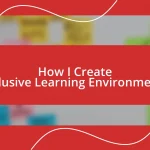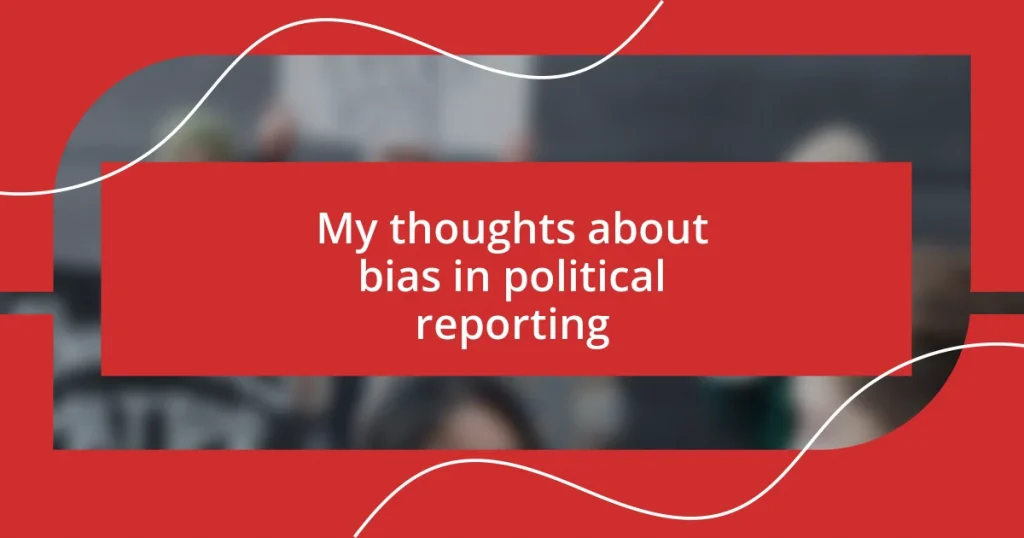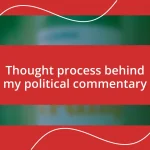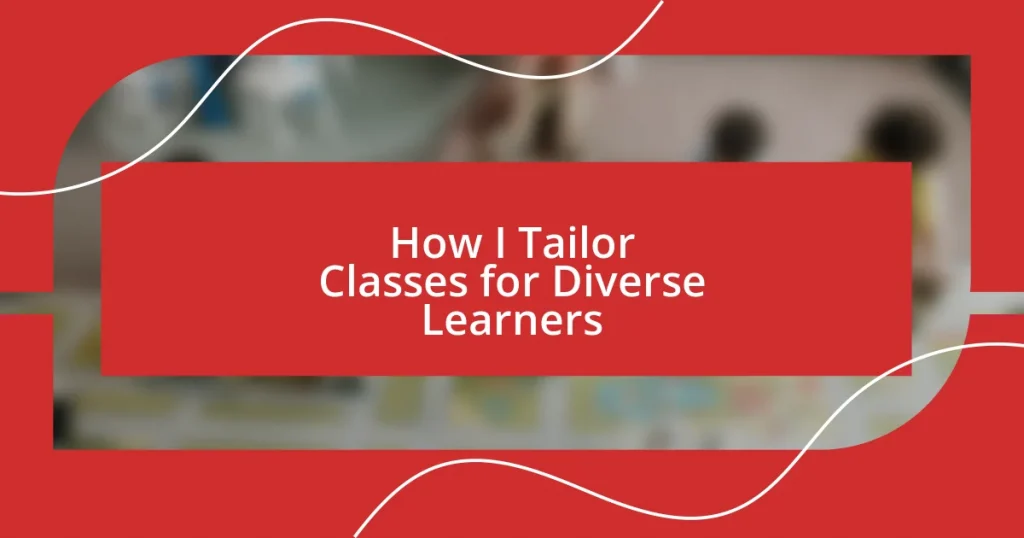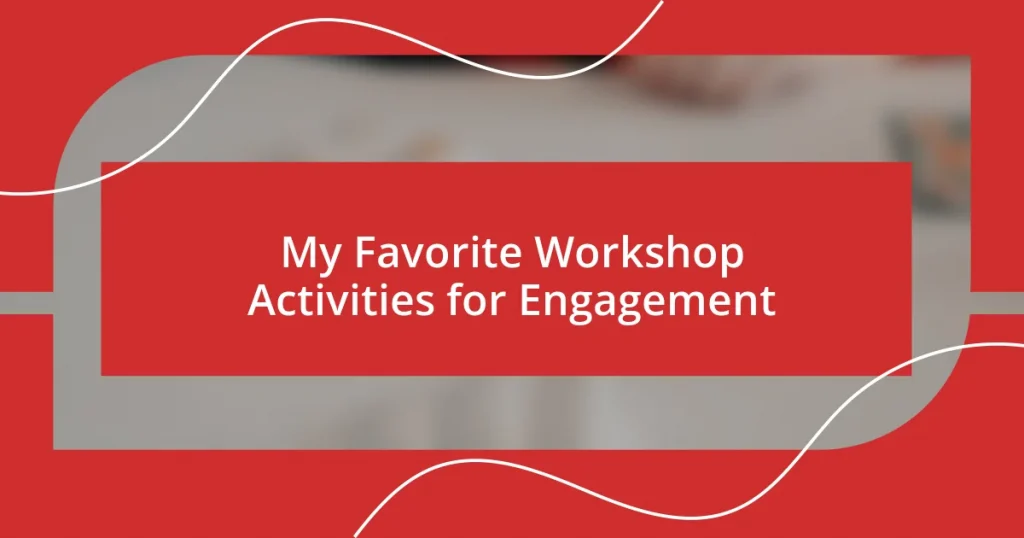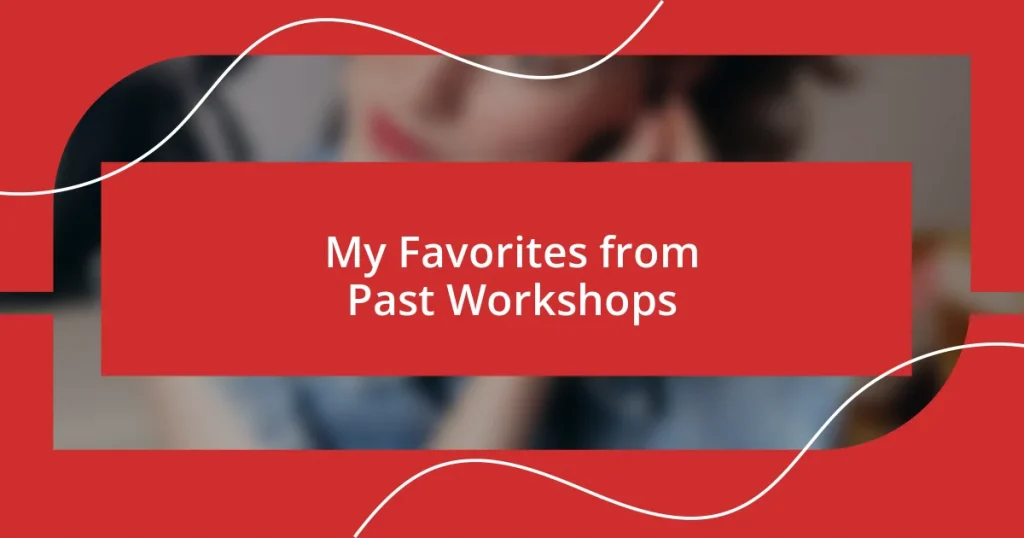Key takeaways:
- Political bias in reporting can significantly alter public perception, shaped by language, descriptors, and selective coverage.
- Recognizing personal biases and seeking diverse perspectives are crucial for engaging in meaningful political discourse and discussions.
- Promoting balanced conversations and challenging echo chambers fosters understanding and empathy among differing viewpoints.
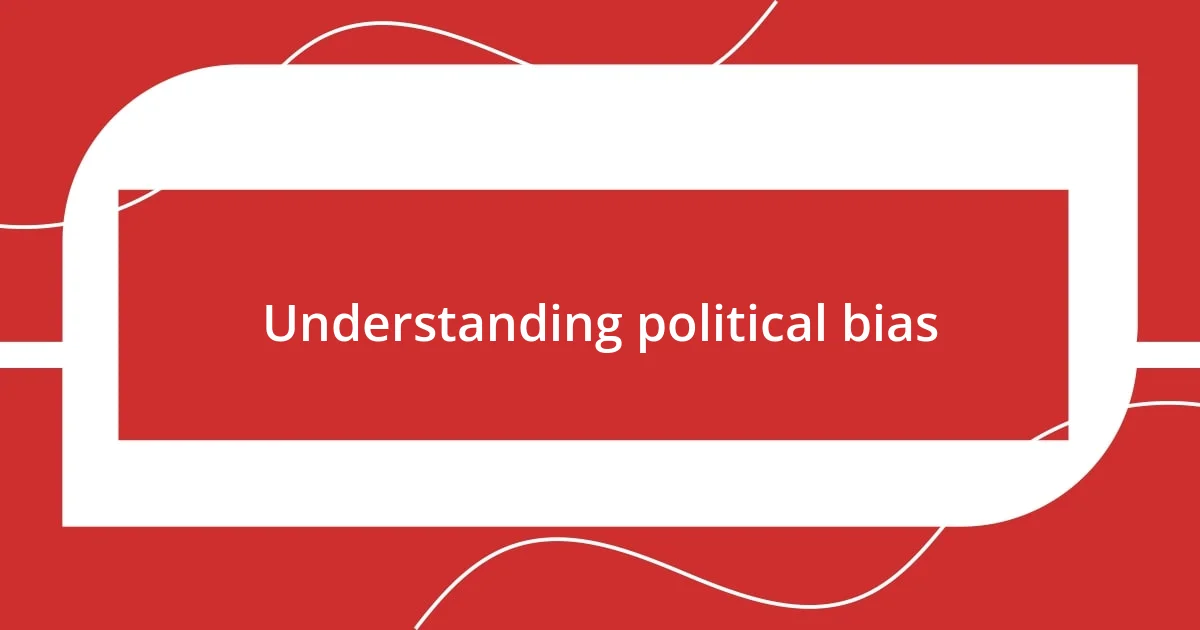
Understanding political bias
Understanding political bias is essential for anyone seeking to make informed decisions. I remember a time when I found myself enthralled by a documentary that portrayed a political figure in a particular light. After discussing it with a friend who viewed the same documentary, I was struck by how our interpretations diverged. It made me realize that bias isn’t always obvious; it often seeps into our perceptions subtly.
When we talk about bias in political reporting, it’s not just about slanting facts but how language and framing shape narratives. Have you ever noticed how the same event can be described in wildly different ways? This can evoke strong emotional responses, depending on the word choices used. For instance, referring to a protest as a ‘riot’ versus a ‘demonstration’ can drastically alter public sentiment. I’ve felt the frustration when my beliefs are challenged by differing viewpoints, prompting me to research more deeply and understand the underlying biases at play.
Furthermore, recognizing my own biases has been an eye-opening journey. It’s easy to see bias in others but harder to acknowledge it within ourselves. I recall an instance where I unconsciously favored a news source because it echoed my beliefs. This experience taught me to seek diverse perspectives deliberately. What if we all took a moment to reflect on our own political leanings? Understanding our biases could not only enrich our views but also foster more meaningful conversations with others.
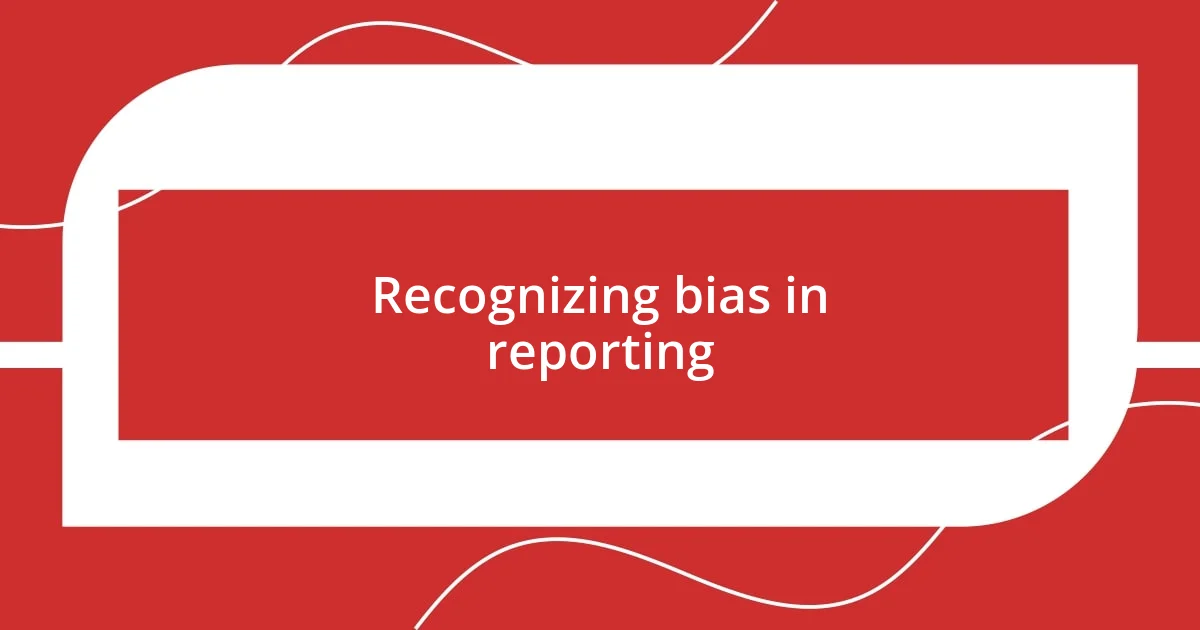
Recognizing bias in reporting
Recognizing bias in reporting can often feel like attempting to spot a hidden object in a complicated landscape. I vividly remember scrolling through social media during an election season, noticing how some friends shared articles that were fervently pro-candidate, while others posted equally fervent articles against the same candidate. It struck me that each article played on emotions, selectively highlighting facts that fueled the prevailing narrative. This observation reinforced the idea that bias can be intentional but also subtle, woven through the very fabric of the wording and tone employed by journalists.
To help identify bias in political reporting, consider these key indicators:
- Word Choice: Notice the descriptors. Are they emotionally charged or neutral?
- Source Selection: Who is cited? Are they credible or widely regarded as biased themselves?
- Scope of Coverage: Does the report include multiple perspectives or favor one over others?
- Omission of Information: Are critical details left out that could provide a fuller picture?
- Framing: How is the story presented? Is there an angle that emphasizes a particular viewpoint?
By keeping these points in mind, I’ve learned to approach news with a more discerning eye, which helps me engage with information more critically.
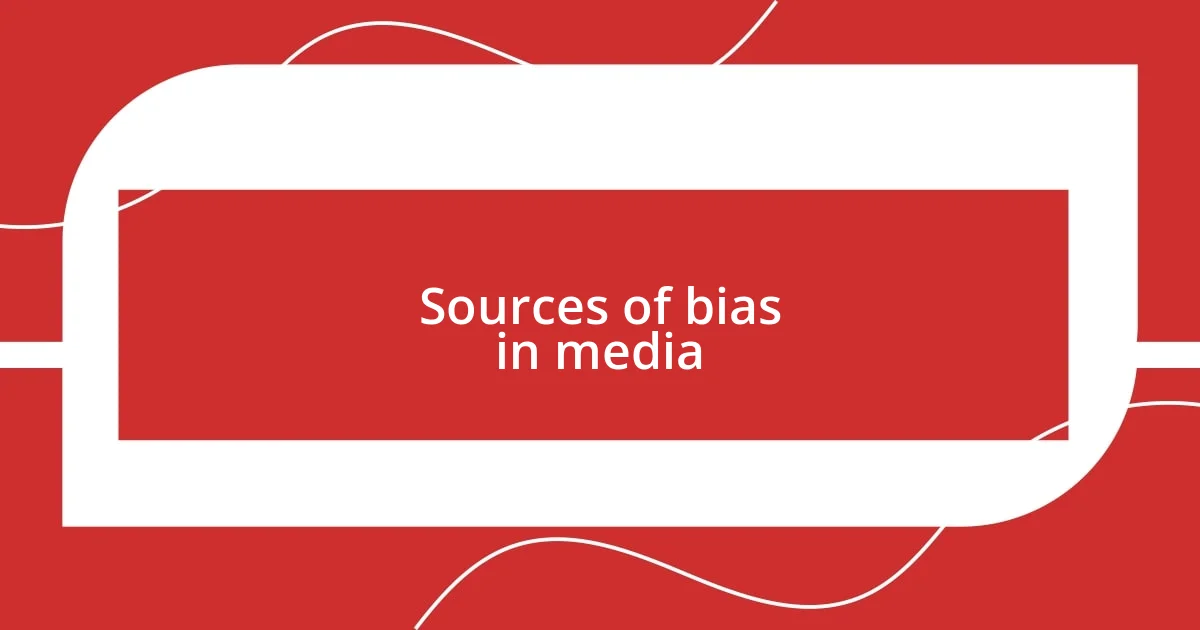
Sources of bias in media
Sources of bias in media can stem from various aspects of journalism and media production processes. One prominent source is the editorial slant of media outlets. I remember stumbling across a local news channel that consistently presented political stories with a clear leaning toward one party. This wasn’t by coincidence; the ownership and management of the channel influenced how stories were selected and reported. It’s a stark reminder that understanding who controls the narrative is key to grasping the biases at play.
Another significant source of bias often comes from individual journalists themselves. These reporters, just like anyone else, have personal beliefs and experiences that can inadvertently color their reporting. I had a friend who worked as a political reporter, and he once confided in me about his struggle to keep his opinions separate from the articles he wrote. It made me think; if a respected journalist finds it challenging to be completely neutral, how vulnerable are the rest of us, who may not even recognize our biases?
Finally, the influence of audience preferences cannot be overlooked. Media outlets tend to cater to the views of their audience to maintain engagement and ratings. Reflecting on this, I recall engaging in a heated discussion after a family gathering where different political opinions clashed. It became clear how the outlets we choose to consume can cater to our preferences, reinforcing our biases rather than challenging them. It’s astonishing how this cycle can perpetuate a narrow perspective, don’t you think?
| Source of Bias | Description |
|---|---|
| Editorial Slant | Media outlets may have political affiliations or biases that shape their reporting choices. |
| Journalist Personal Beliefs | Individual reporters might unconsciously project their own beliefs into their stories. |
| Audience Preferences | Media often caters to audience views, reinforcing existing biases rather than challenging them. |
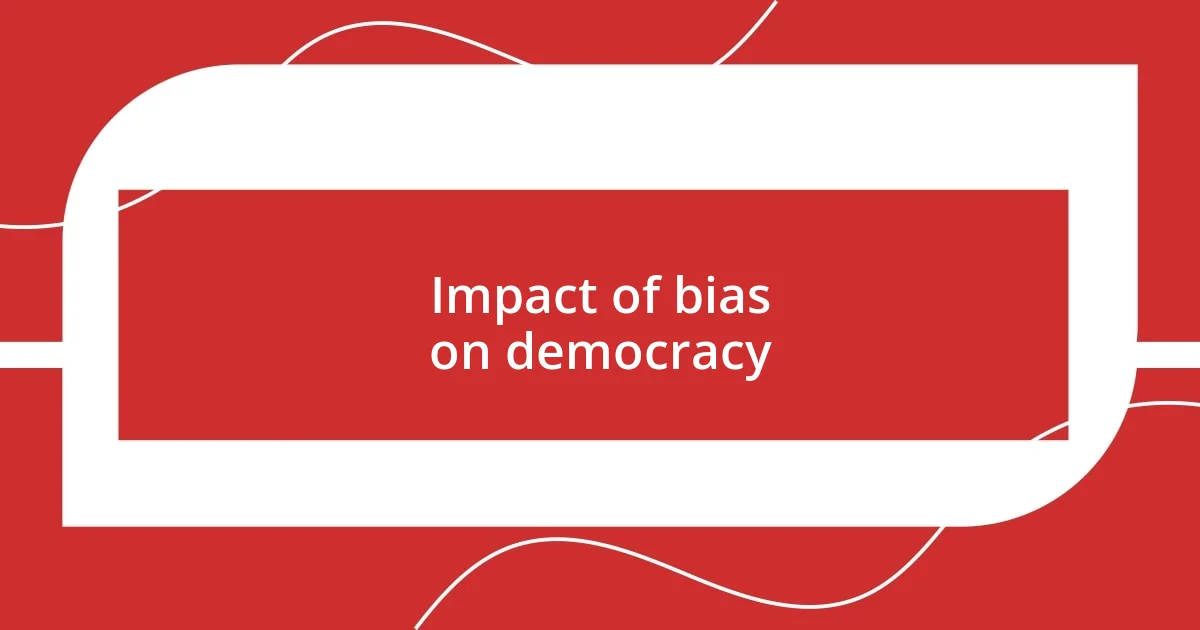
Impact of bias on democracy
The impact of bias on democracy is profound and sometimes chilling. I recall a conversation with a friend who was convinced of a particular political narrative simply because they only consumed media from sources with a specific bias. It struck me that this kind of selective exposure can create echo chambers, where individuals hear only what they want to hear. Have you noticed how this can distort the very foundation of democratic discourse, where diverse viewpoints should ideally coexist?
When bias seeps into political reporting, it doesn’t just shape public opinion; it can actively polarize communities. I remember attending a community event where discussions quickly turned into heated debates, often fuelled by misrepresentations from biased news articles. This left me wondering, how can we expect people to engage in healthy democratic discussions when the information they rely on is skewed? It’s a slippery slope that can lead to an uninformed electorate, ultimately undermining the principles of democracy itself.
Moreover, the implications of biased reporting extend to voter behavior. I came across a study that indicated people often feel disenfranchised when they perceive media misrepresentations of their beliefs. It was heartbreaking to see others feel alienated by narratives that didn’t resonate with their realities. This begs the question: if we can’t trust the media to present an accurate picture of our democratic processes, how can we expect citizens to make informed decisions at the polls? It’s a critical issue that calls for our attention and action.
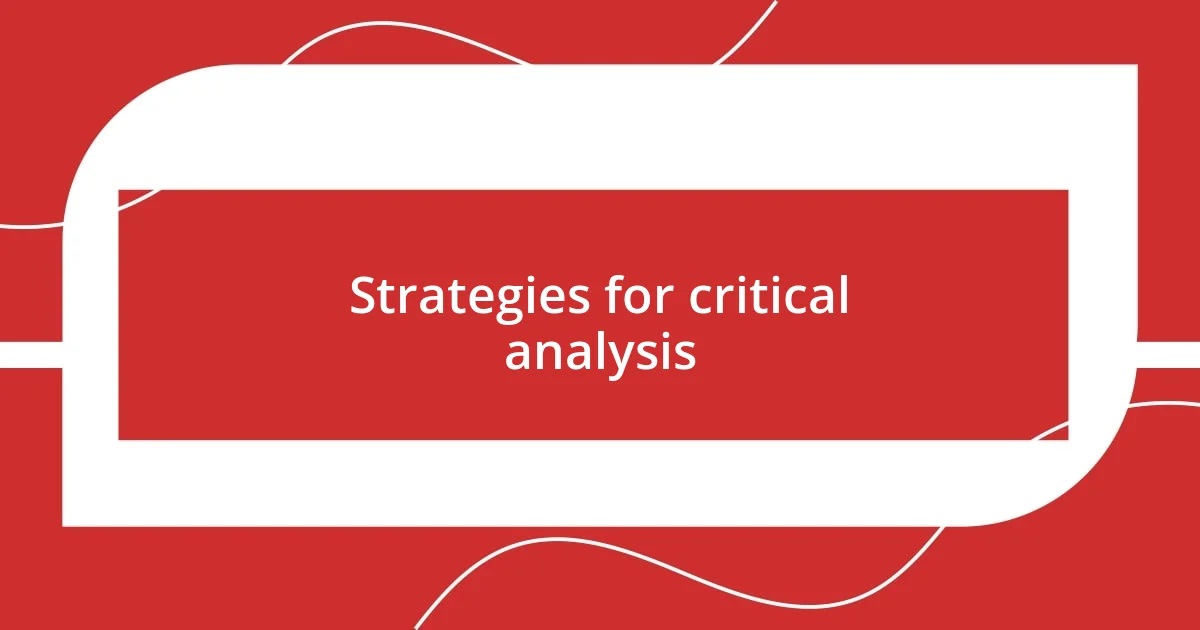
Strategies for critical analysis
When it comes to critically analyzing political reporting, one effective strategy is to compare multiple sources. I often find that reading articles from various outlets, even those I might not usually agree with, helps me see the broader context of an issue. For instance, during an election cycle, I made it a habit to follow both liberal and conservative perspectives on key candidates. This practice not only expanded my understanding but also highlighted the stark contrasts in reporting styles.
Another strategy I employ involves questioning the language used in news reports. I remember a piece that described a political protest as a “riot.” This wording sparked a personal investigation into the event—a simple choice of adjective can significantly influence perception. Such language can shape narratives in powerful ways, making it essential to unpack the emotions and biases behind specific word choices. So, next time you encounter charged language, ask yourself: what impact does this have on my understanding of the situation?
Finally, considering the author’s background and motives can add another layer to your analysis. I once discovered that a columnist had deep financial ties to a particular political party after reading a piece that strongly favored their policies. It left me thinking—how much can I trust the views presented when there’s a potential conflict of interest? Who stands to gain from the narrative being spun? Delving into the potential motivations behind reporting leads to a deeper awareness of bias, ultimately empowering us to become more discerning consumers of news.
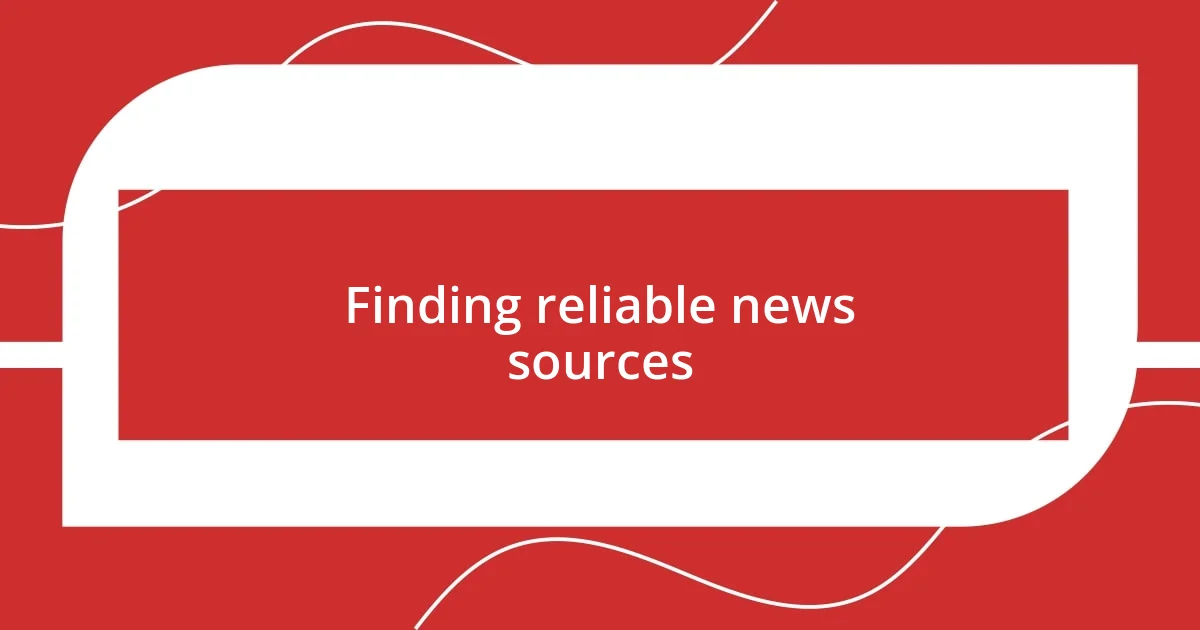
Finding reliable news sources
Finding reliable news sources can feel daunting at times, especially given the plethora of information available. I vividly remember a time when I discovered a local news outlet that consistently focused on factual reporting rather than sensationalism. My initial skepticism turned into appreciation as I found their balanced coverage refreshing and enlightening. It made me realize that not all outlets are created equal, and finding one that prioritizes journalistic integrity is crucial.
One technique I’ve found helpful is checking the source’s reputation and history. For example, when I first started exploring new sources, I stumbled across a widely shared article that seemed just a bit too polished. A quick glance at their track record revealed a pattern of sensational headlines and misleading claims. This experience underscored the importance of researching a news outlet’s credibility before accepting their narratives at face value—after all, how often do we accept information without question when it seems compelling?
Finally, I believe that examining the source’s funding and ownership can provide significant insight into potential biases. I recall a moment when I learned about a news company whose funding sources influenced its editorial line. Understanding who backs a media outlet can open your eyes to underlying motives. It’s a simple but powerful question: if a news source is funded by particular interests, how likely are they to report with neutrality? This reflection can empower you, as a consumer of news, to navigate the complex media landscape with greater confidence.
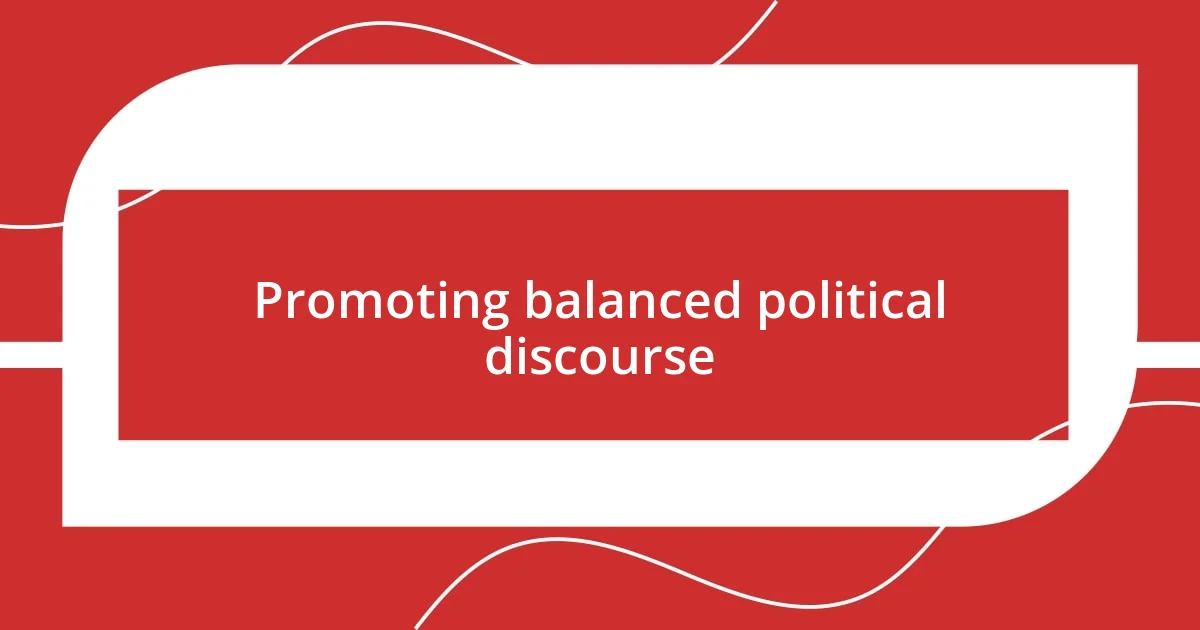
Promoting balanced political discourse
When I think about promoting balanced political discourse, I often recall a community forum I attended that brought together individuals with wildly differing viewpoints. It was intriguing to witness how participants genuinely listened to one another instead of shouting over each other. This experience left me with a powerful realization: having open dialogues fosters understanding, not just agreement. Have you ever felt the tension diminish when both sides are heard? It’s a remarkable shift.
A pivotal moment for me was when I engaged in a discussion online where opposing views clashed violently. Initially, I found myself defensive, but then I decided to approach it differently. I started asking questions instead of firing off rebuttals. Asking “What led you to that conclusion?” not only calmed the discourse but also opened doors to shared values. I believe that being curious rather than combative can move conversations forward. Isn’t it refreshing to seek common ground rather than focusing solely on differences?
One powerful tool for promoting balanced discourse is actively challenging echo chambers. I remember the discomfort I felt when I realized I was only surrounding myself with voices that echoed my own beliefs. This prompted me to purposely seek conversations with those from varying backgrounds and ideologies. It can be awkward and even unsettling at times, but the growth from these interactions is invaluable. How often do we grow from discomfort? In my experience, stepping outside of my comfort zone made me more empathetic and better equipped to navigate complex conversations.







